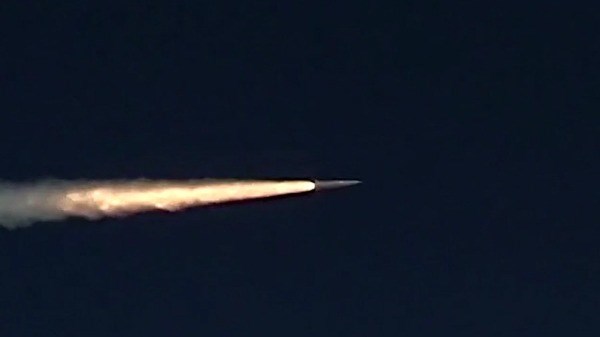The U.S. to invest $28 billion in hypersonic missiles production
The U.S. military industry is rubbing its hands, anticipating a missile arms race that the world has not seen since the collapse of the USSR.
According to Stars and Stripes, the United States plans to invest at least $28.5 billion in the production of hypersonic systems, which are already in service with China and the presence of which has been repeatedly announced by Russian President Vladimir Putin.
Northrop Grumman, Raytheon and Lockheed Martin and other Pentagon contractors are competing for contracts that will provide the largest American manufacturers with billions in revenue for years to come.
The United States sees China as its main competitor, which, according to the Federation of American Scientists, already has Dongfeng-17 hypersonic missiles and is developing another model - Xingkong-2.
When in September it became known about China’s tests of a hypersonic vehicle that flew around the earth and launched a missile over the South China Sea, US congressmen called for an urgent review of the Pentagon's defense programs, and a member of the Senate Armed Services Committee Jim Inhofe said about the "national security crisis" because of the "very real" Chinese threat.
The United States ignored tests of the Russian hypersonic missile Zircon, which took place on December 24 and which, according to Putin, were "successful" and "flawless". There was no comment on the matter from either the Pentagon or Congress.
Unlike Russia, where Putin boasts of miracle weapons, China did not even confirm the fact of the tests. The Pentagon said it was "gravely concerned" that Beijing denied tests that were detected by the American satellites.
“China is the main competitor, which the U.S. will have to catch up in the coming years,” said Gregory Hayes, the CEO of Raytheon Technologies - one of the largest contractors of the US Department of Defense.
Hypersonic weapons are one of the most serious threats to U.S. security, and the response time is "very short," he warned in October. Hayes did not say a word about Russian weapons.
In September, Raytheon tested a prototype hypersonic system it is developing in collaboration with Northrop Grumman, another major Pentagon contractor, as part of a $200 million contract. A test of the missile, which is launched from an airplane and uses a so-called scramjet to reach speeds above Mach 5, was deemed successful.
Northrop Grumman, which supplies engines for such missiles, has a contract for the production of 14 units and expects to increase deliveries to 124 units as part of a $1 billion deal.
Lockheed Martin - the largest supplier of hypersonic systems to the Pentagon - announced plans to test its samples in the first half of 2022 with possible delivery to the troops as early as 2023.
The company expects to generate up to $3 billion in annual revenue from hypersonic weapons production by 2026, Chief Financial Officer John Mollard said in a call with investors in October.
